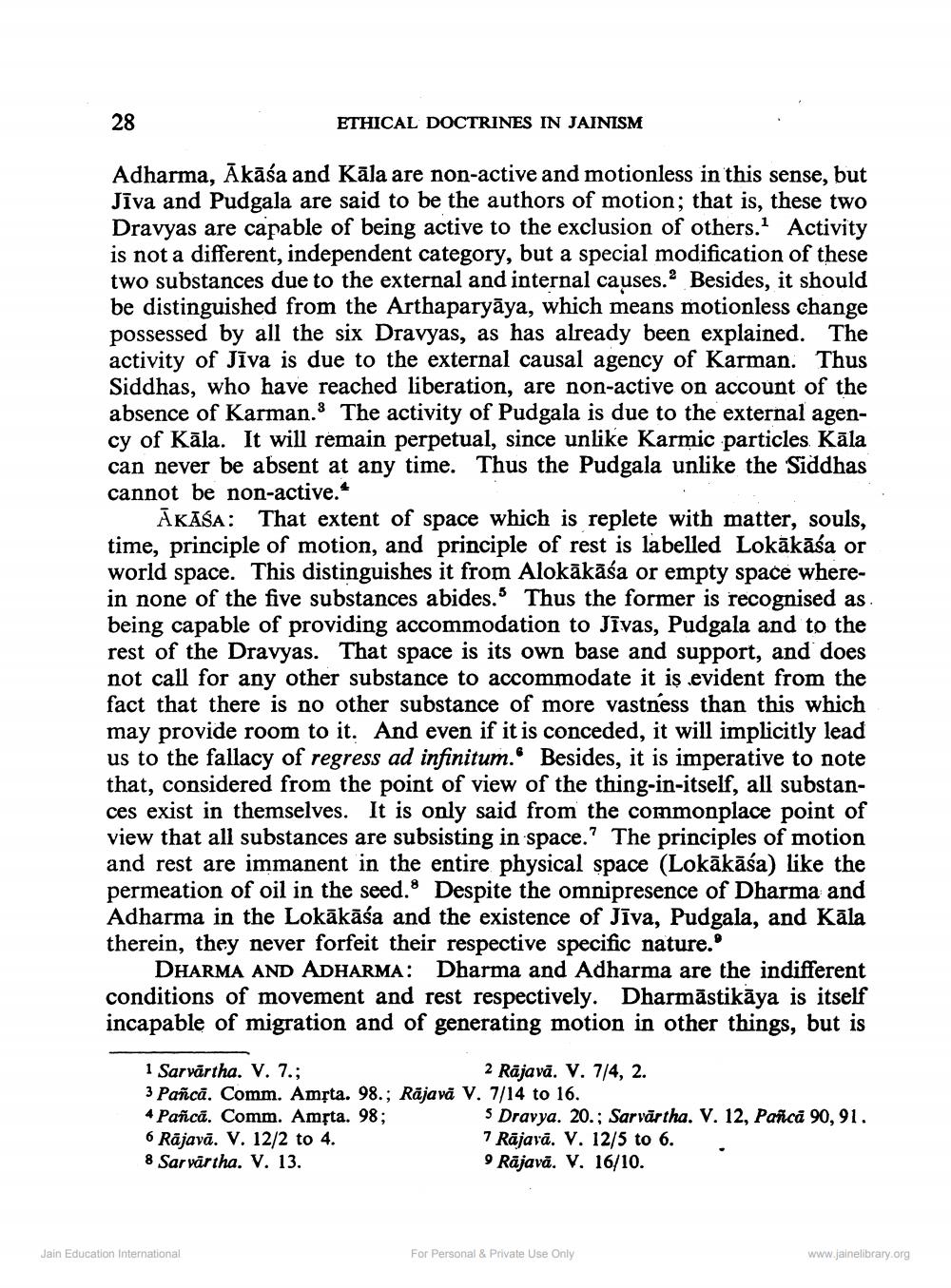________________
28
ETHICAL DOCTRINES IN JAINISM
Adharma, Ākāśa and Kāla are non-active and motionless in this sense, but Jīva and Pudgala are said to be the authors of motion; that is, these two Dravyas are capable of being active to the exclusion of others. Activity is not a different, independent category, but a special modification of these two substances due to the external and internal causes. Besides, it should be distinguished from the Arthaparyāya, which means motionless change possessed by all the six Dravyas, as has already been explained. The activity of Jīva is due to the external causal agency of Karman. Thus Siddhas, who have reached liberation, are non-active on account of the absence of Karman.3 The activity of Pudgala is due to the external agency of Kāla. It will remain perpetual, since unlike Karmic particles Kāla can never be absent at any time. Thus the Pudgala unlike the Siddhas cannot be non-active.
ĀKĀSA: That extent of space which is replete with matter, souls, time, principle of motion, and principle of rest is labelled Lokākāśa or world space. This distinguishes it from Alokākāśa or empty space wherein none of the five substances abides. Thus the former is recognised as being capable of providing accommodation to Jīvas, Pudgala and to the rest of the Dravyas. That space is its own base and support, and does not call for any other substance to accommodate it is evident from the fact that there is no other substance of more vastness than this which may provide room to it. And even if it is conceded, it will implicitly lead us to the fallacy of regress ad infinitum. Besides, it is imperative to note that, considered from the point of view of the thing-in-itself, all substances exist in themselves. It is only said from the commonplace point of view that all substances are subsisting in space.? The principles of motion and rest are immanent in the entire physical space (Lokākāśa) like the permeation of oil in the seed. Despite the omnipresence of Dharma and Adharma in the Lokākāśa and the existence of Jīva, Pudgala, and Kāla therein, they never forfeit their respective specific nature.
DHARMA AND ADHARMA: Dharma and Adharma are the indifferent conditions of movement and rest respectively. Dharmāstikāya is itself incapable of migration and of generating motion in other things, but is
1 Sarvartha. V. 7.;
2 Räjava. V. 7/4, 2. 3 Pañcā. Comm. Amộta. 98.; Rajava V. 7/14 to 16. 4 Pañcā. Comm. Amfta. 98;
5 Dravya. 20.; Sarvärtha. V. 12, Panca 90, 91. 6 Rajavā. V. 12/2 to 4.
7 Rājarā. V. 12/5 to 6. 8 Sarvartha. V. 13.
9 Rājavā. V. 16/10.
Jain Education International
For Personal & Private Use Only
www.jainelibrary.org




